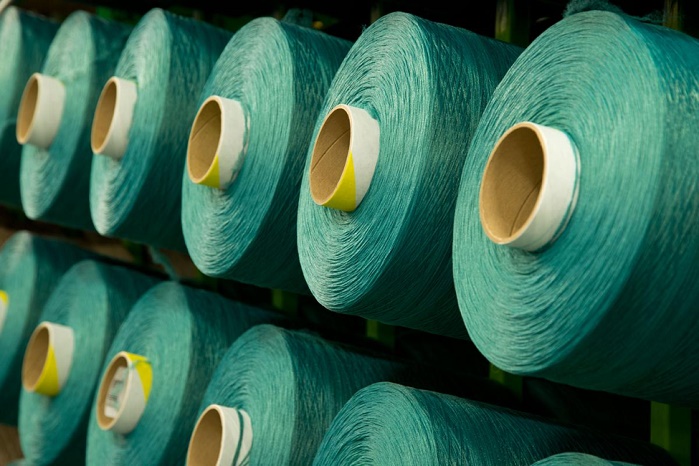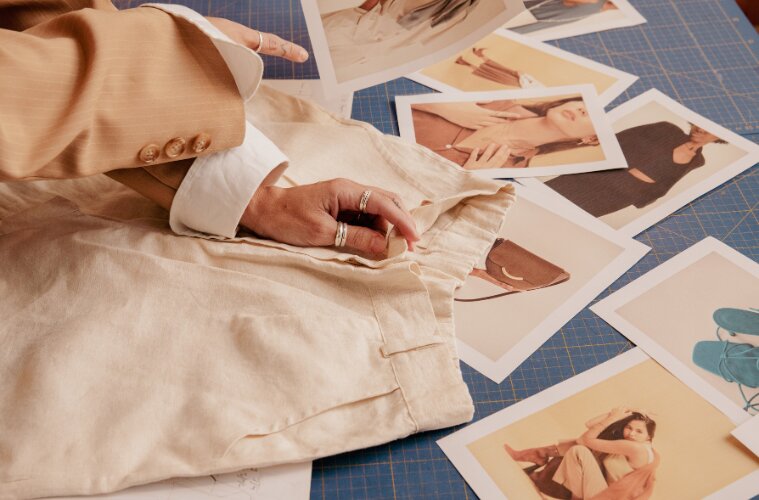FW
American Apparel & Footwear Association (AAFA) President and CEO Rick Helfenbein has opposed President Trump’s decision to impose new punitive tariffs on all $500 billion of U.S. imports from China.
According to him, the tariffs would make American companies and farms less competitive threatening the very livelihoods of millions of American workers and farmers.
Calling it a short sighted approach Trump labeled the tariffs as taxes that will hit the low-income Americans the hardest, imposing new hidden taxes on everything that they need to buy for themselves and their families.
He also expressed his association’s desire to participate in a trading system that creates more jobs in America and respects its intellectual property, but stated that tariffs will not enable this. They will only create inflation, hurt the consumer, and damage the economy.
Experts have hinted that Kenya is likely to be a beneficiary of another US export window that is being considered to replace the Africa Growth and Opportunity Act (AGOA) after seven years.
AGOA, which grants the country and 40 other African states quota and duty-free access to the US market of more than 6,000 product lines expires in 2025.
The US hosted the 17th AGOA Forum where discussions also focused on options for a “post-AGOA” model from 2025 onwards, including the possibility of crafting free trade deals. Currently countries eligible for AGOA benefits are subject to various requirements covering topics beyond purely economic concerns, such as ensuring rule of law, labour rights protections, and political pluralism.
The AGOA plan has been dominated by export of textile and apparel, which accounts for 65 per cent of the total exports. Kenya ranks among the top supplier of apparel to the US, having exported $340 million worth of such goods to the US last year.
The National Council of Textile Organisations (NCTO) has praised the Trump administration’s tariff announcement and suggested that any future list made for tariff purpose for China, under Section 301 should include finished textile and apparel products.
This is completely in contrast to the earlier situation, when the American Apparel and Footwear Association was pleased that no textile and apparel products were subject to punitive tariffs proposed by the USTR in the initial list published under Section 301.
The June 15 USTR list also removes the majority of the textile machinery initially on the retaliation product-list back in April 2018. Even the United States Fashion Industry Association (USFIA) opposed adding apparel and other fashion products to the retaliation list against China, arguing that imposing tariffs on imports of fashion products would do nothing to solve the concerns about China’s IP policies and practices outlined in USTR’s Section 301 report.
However, the NCTO is firm on including textile and apparel products in the future list. If properly targeted, Section 301 tariffs would not only address the underlying illegal activity on the part of China, but also help re-shore American jobs and boost U.S. exports to the NAFTA and CAFTA regions.
Pure London, the largest fashion festival, being held in London from July 22-24, 2018 will feature an edited collection of over 700 global brands, including some of the best emerging designers showcasing their latest collections in the UK for the first time; sustainable and ethical collections in Pure Conscious; and childrenswear in Pure Kid.
Sourcing and manufacturing show Pure Origin has grown this season and now includes a dedicated Denim area and a future Fabric Trends display.
The show will include exclusive SS19 future trend insights by WGSN and catwalk shows, including Graduate Fashion Week winners and childrenswear. It will also feature a host of worshops and provide networking opportunities including keynote addresses from Maya Jama, Professor Caryn Franklin, and Hilary Alexander OBE discussing diversity, ethics and sustainability in fashion.
Pure London, will also collaborate with Scoop to offer buyers a complimentary taxi service between the two shows.
Khazanah Nasional Berhad, the strategic investment fund of the Malaysian government, is planning to invest in the Indian arm of Pepe Jeans.
Khazanah joins The Carlyle Group, Advent International and General Atlantic to acquire a stake in Pepe Jeans. The three US-based private equity funds were shortlisted to acquire a controlling stake in the Indian arm of Pepe Jeans.
The valuation is still being negotiated between Khazanah and Pepe. Earlier, the branded apparel group was seeking a valuation of Rs 2,000 crore ( $US .29 billion) for its business in India. Pepe Jeans India is a wholly-owned subsidiary of Pepe Jeans Group headquartered in Barcelona, Spain. The company was originally founded by three Indians, Arun, Nitin and Milan Shah, in London in 1973 as a weekend stall denim brand.
Pepe Jeans in India has over 215 franchise stores and retails its branded apparel through 1,000 multi-brand stores in the country. For fiscal year 2017, the firm posted net of Rs 49 crore ($US 7.12 million) and sales of Rs 424 crore ($US 0.62 billion), according to filings with Registrar of Companies.
The Karachi Cotton Association has urged the government to waive all duties and taxes on import of cotton immediately in the national interest so that the local textile industry is able to export optimum quantity of value added products of raw cotton in the international market.
The Pakistan government had decided to impose 3 percent customs duty, 2 percent additional customs duty, 5 percent sales tax and 1 percent income tax on import of raw cotton with a view to encourage use of the local cotton crop.
KCA views that the Government should realise that due to anticipated decline in cotton production again in cotton season 2018-19 especially owing to severe water shortage during cultivation period and usual factors of reduction in yield per acre, cultivation of sugarcane in the areas earmarked for cotton cultivation and supply of uncertified Cotton Seed etc.
The local textile industry is, therefore, compelled to import raw cotton from abroad to meet its requirement of basic/primary raw material.
However, after payment of such heavy duties and taxes imposed on import of cotton, the cost of imported cotton will be considerably increased due to which the local textile industry will become unable to compete in the international markets. As a result of this, the exports of value added products of cotton and foreign exchange earning of the country will be badly affected.
The GST Council has decided to refund accumulated credit on account of inverted duty structure to fabric manufacturers.
CITI has applauded the decision. CITI has been consistently requesting the government to give relief to the fabric segment as for the overall growth of the textile sector, fabric sector plays an important role and it also generates a sizeable employment opportunities of 40 jobs on each 1 crore investment - which is more than any segment of the textile value chain. Hence, decision to allow refund of accumulated Input Tax Credit (ITC) at Fabric stage due to inverted duty structure is a big relief to the textile sector.
The rates cut on Chenille fabrics and other fabrics under heading 5801 and Handloom dari to 5 per cent from 12 per cent is a big win for the textile manufacturers who were reeling under immense pressure.
It would further boost employment in the powerloom sector, as about 40,000 textile workers have lost their jobs in last one year and would prevent further job losses.
EPCH has regularly been representing to the GST council for the smooth transition of exporters into the new taxation regime and for the reduction in the GST rates.
The 28th meeting of the GST council proposed reduction of GST rates on various items. The demands of the handicraft sector have also been considered and rates have been recommended to be reduced on many handicraft items. This rate reduction will help further result in rationalisation of the GST rates.
This initiative would certainly help over 11,000 member exporters and over 1 million craftspersons in enhancing production capacity, employability and achieve exports growth in the future.
IndustriALL Global Union affiliates, FENOTHAC and FESYNEME, who met in Cotonou as part of a programme by IndustriALL to build union strength in the country, agreed that the right to strike must be defended in all sectors, and that the unions should campaign against the government’s intention to ban the right to strike in oil and gas and electricity, which it says are essential services.
Further, workers' participation in union activities should be increased, national council formed, joint activities carried out, and communications improved.
The garment and textile sector has been in decline with most former factory workers now employed in the informal sector, where more than 90 per cent of the workers in Benin make out a living. So, most of the FENOTHAC members are in the small-scale traditional tailoring sector. On the other hand, mining is picking up and exports for gems and precious stones have begun.
"A recent report suggests ‘Made in US’ clothing is gaining ground with the government’s thrust and companies’ near-shoring strategies. The focus is on high-quality US craftsmanship priced competitively with imports. This proposition makes perfect sense for manufacturers and sellers as the entire supply chain is in their hands rather than depending on the external factors. These increasingly growing state of affairs is giving rise to ‘grown and sewn in the US’ phenomenon, where e-commerce lets small firms tell a story and sell directly to consumers who have an interest in natural fibres such as cotton and wool, a willingness to invest in longer-lasting higher-quality goods and a desire to shop local."
 A recent report suggests ‘Made in US’ clothing is gaining ground with the government’s thrust and companies’ near-shoring strategies. The focus is on high-quality US craftsmanship priced competitively with imports. This proposition makes perfect sense for manufacturers and sellers as the entire supply chain is in their hands rather than depending on the external factors. These increasingly growing state of affairs is giving rise to ‘grown and sewn in the US’ phenomenon, where e-commerce lets small firms tell a story and sell directly to consumers who have an interest in natural fibres such as cotton and wool, a willingness to invest in longer-lasting higher-quality goods and a desire to shop local.
A recent report suggests ‘Made in US’ clothing is gaining ground with the government’s thrust and companies’ near-shoring strategies. The focus is on high-quality US craftsmanship priced competitively with imports. This proposition makes perfect sense for manufacturers and sellers as the entire supply chain is in their hands rather than depending on the external factors. These increasingly growing state of affairs is giving rise to ‘grown and sewn in the US’ phenomenon, where e-commerce lets small firms tell a story and sell directly to consumers who have an interest in natural fibres such as cotton and wool, a willingness to invest in longer-lasting higher-quality goods and a desire to shop local.
Numerous start-ups are flourishing from this idea. For instance, McIntosh, founder of Homegrown Cotton, wasn’t satisfied with the imported polo shirts costing from $80 to $90. Thanks to changing paradigms, every step of the process is done in North and South Carolina. The shirt’s final cutting and sewing happens 40 miles from his farm. Similarly, Anna Brakefield and Mark Yeager, father-daughter owners of Alabama-based Red Land Cotton, started their bedding and towel brand a ‘farm-to-home’ product. By growing and ginning their own cotton, they create a higher-quality fibre, which is spun, woven and finished in South Carolina and Georgia before being sewn in their hometown. Earlier they were unable to find sewers who could do some of the finer detail hemming for their sheets, later found a small-scale sewing firm in their hometown to finish the sheets.
Quest for organic cotton
A growing perception is that people in the US are increasingly opting for US made clothing. A survey by Cotton Incorporated showed 66 per cent consumers say they are interested in buying US-made clothing made with US-grown cotton. Rob McMillian, Founder of Chicago-based Dearborn Denim, says when he started the company in 2016, he wanted to create an all-American apparel company that produced high-quality products at an affordable price to show that locally made goods don’t have to be more expensive. Even though the manufacturing costs are higher in Chicago than using foreign products and labour, the e-commerce route helped keep costs down. His women’s and men’s jeans cost around $60, competitive with prices of jeans from The Gap and Levi’s.
consumers say they are interested in buying US-made clothing made with US-grown cotton. Rob McMillian, Founder of Chicago-based Dearborn Denim, says when he started the company in 2016, he wanted to create an all-American apparel company that produced high-quality products at an affordable price to show that locally made goods don’t have to be more expensive. Even though the manufacturing costs are higher in Chicago than using foreign products and labour, the e-commerce route helped keep costs down. His women’s and men’s jeans cost around $60, competitive with prices of jeans from The Gap and Levi’s.
Tom Chappell, Founder of Ramblers Way, offers organic wool and cotton clothing online and does custom-made clothes in their shops in Maine and New Hampshire, said it took a lot of trial and error to get the fabric quality he wanted and to do it sustainably. They built their own factory in Canton, Mass., to create a superfine worsted Rambouillet merino and organic merino wool that wasn’t itchy and could be worn year-round.











